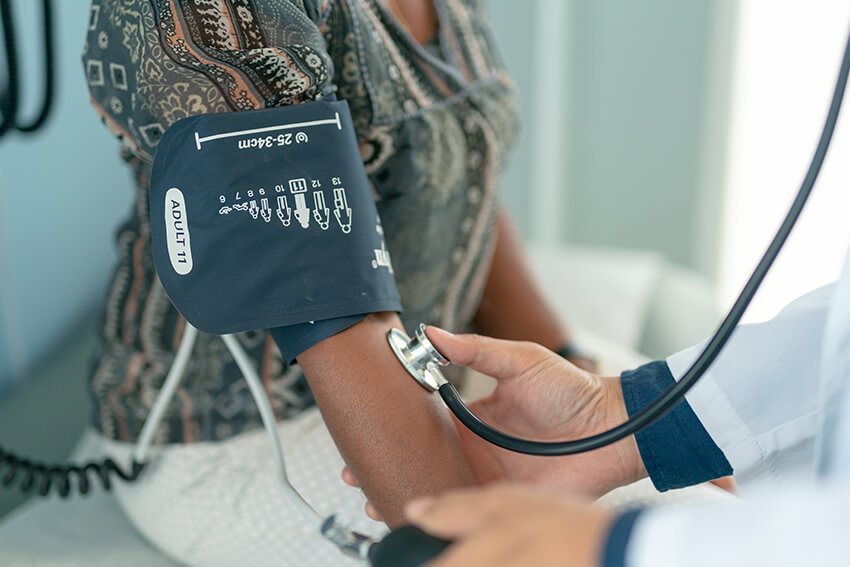What is Cholesterol, and Why Is It Important to My Health?
Nearly 1 in 3 Americans has high cholesterol, which can lead to heart disease — the leading cause of death in the U.S. But what is cholesterol? More importantly, what causes bad cholesterol and what can you do to keep your cholesterol levels and heart healthy?
What is Cholesterol?
Cholesterol is a waxy organic molecule that is an essential building block for creating healthy cells. It’s also necessary for creating estrogen, progesterone, stress hormones and vitamin D. Our liver and intestines produce 80% of the total cholesterol content in our body, leaving the remaining 20%-30% dependent on our diet and a few other factors.
Cholesterol is a lipid molecule, but it can’t be exercised off, sweated out or burned for energy like fat. Too much of it is a bad thing, but a healthy cholesterol level is an important part of cell regeneration and maintaining a healthy metabolism.
How Does Cholesterol Work?
Fat and cholesterol don’t mix well with water. Since the human body is mostly made up of water, these two molecule types need to be packaged inside lipoproteins to travel through the bloodstream. These lipoproteins (formed from lipid and protein) act as emulsifiers, allowing fats and cholesterol to circulate. Once the body’s cell receptors recognize the lipoproteins, fat and cholesterol are directed into specific tissues to perform certain functions.
“Good” vs. “Bad” Cholesterol
When you take a cholesterol test, your doctor will measure the level of lipoprotein in your blood. Two specific lipoproteins, called HDL (high-density lipoprotein) cholesterol and LDL (low-density lipoprotein) cholesterol are what we commonly refer to as good and bad cholesterol.
LDL is the major carrier of cholesterol in the body. When you have too much LDL, the molecules are consumed by cells called macrophages that get trapped inside the walls of your blood vessels. This leads to cholesterol plaque buildup — the main cause of heart attacks and strokes. For this reason, LDL is considered “bad cholesterol.”
On the other hand, HDL removes cholesterol from circulation by carrying cholesterol from the cells back to the liver through reverse transport. The liver then repurposes that cholesterol into bile or other essential tissues. The higher your HDL levels are, the less plaque buildup you have. This is why HDL is considered “good cholesterol.”
What Causes High Cholesterol?
To better understand how to maintain heart-healthy cholesterol levels, let’s first look at what causes bad cholesterol. A variety of factors can cause high LDL levels (and low HDL levels) . In many cases, it has nothing to do with diet and everything to do with genetics.
Familial hypercholesteremia, for example, is a defect on chromosome 19 that makes it difficult for the body to remove LDL from the blood. About 1 in 250 people have this condition, which puts them at risk for heart attacks and strokes at an early age.
When genetic conditions are not a factor, diet, exercise, smoking and drinking alcohol can certainly be. Obesity and poor lifestyle choices can lead to liver disease, diabetes, high blood pressure thyroid disease and kidney and adrenal gland issues, which can increase your cholesterol levels, putting your heart at risk.
What is a Healthy Cholesterol Level?
An overall healthy cholesterol level is less than 200 in adults. 200-250 is considered moderately elevated, while anything above 250 is highly elevated.
With HDL levels, specifically, you should aim for 60 or higher. However, doctors say this is very uncommon. Most patients have HDL levels in the 40s, and 50s.
LDL should ideally be less than 100, but anything below 70 is best.
Triglycerides — or the fat content in your blood, is also measured during a cholesterol screening. Any level below 150 is healthy, but below 100 is ideal.
How Can I Prevent High Cholesterol?
Unfortunately, there are very few symptoms that point to a high cholesterol level. Oftentimes, people don’t know they have high cholesterol until they have a heart attack or stroke. The good news is there are several measures you can take to maintain healthy cholesterol levels.
Perhaps the most important of them all is diet.The food you eat accounts for up to 30% of your body’s cholesterol, so you should avoid trans fats and partially hydrogenated vegetable oil. Also, all animal products contain at least some cholesterol, so try to consume them in moderation to avoid plaque buildup over time. The following foods are high in cholesterol:
- High-fat dairy products
- Red meat
- Sausage and bacon
- Fried food
- Processed food
Instead, try to incorporate foods into your diet that are high in fiber (like oatmeal), omega-3 fatty acids (like fish) and polyunsaturated fats (like avocados, nuts and olive oil). Stick to plant-based foods as much as possible and use whey protein as a supplement if needed. This is called the Mediterranean diet.
Lifestyle is another huge factor in heart health. Aim to exercise at least three times per week and quit smoking or vaping. And, as mentioned earlier, family history and genetic mutations often come into play.
Finally, the single best way to prevent high cholesterol levels is to get tested regularly. Experts suggest testing children between the ages of 9 and 11, and again between 17 and 19. Adults who have no obvious risk for heart disease should get tested every 5 years.
If you do have high cholesterol, ask your doctor about statin medicines like Lipitor, engage in healthy habits and get tested and treated more regularly. Whether your cholesterol problems are genetic or lifestyle-related, you can still live a long, healthy life when you take the proper precautions.
Sources:
- https://www.heart.org/en/health-topics/cholesterol/prevention-and-treatment-of-high-cholesterol-hyperlipidemia
- https://www.cdc.gov/genomics/disease/fh/FH.htm#:~:text=Familial%20hypercholesterolemia%20(FH)%20is%20a,disease%20at%20a%20younger%20age.
- https://www.healthline.com/nutrition/mediterranean-diet-meal-plan
- https://health.gov/myhealthfinder/topics/health-conditions/heart-health
- https://www.healthline.com/nutrition/high-cholesterol-foods





